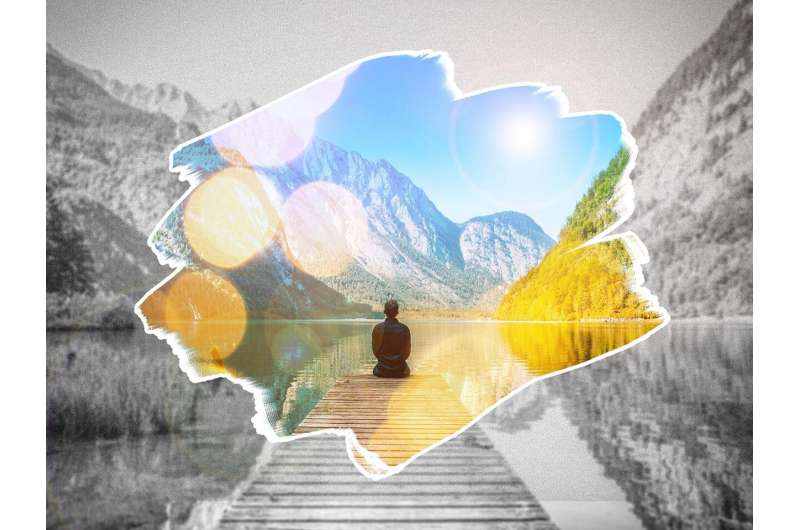How the brain paints the beauty of a landscape

How does a view of nature gain its gloss of beauty? We know that the sight of beautiful landscapes engages the brain's reward systems. But how does the brain transform visual signals into esthetic ones? Why do we perceive a mountain vista or passing clouds as beautiful? A research team from the Max Planck Institute for Empirical Aesthetics has taken up this question and investigated how our brains proceed from merely seeing a landscape to feeling its esthetic impact.
In their study, the research team presented artistic landscape videos to 24 participants. Using functional magnetic resonance imaging (fMRI), they measured the participants' brain activity as they viewed and rated the videos. Their findings have just been published in the open-access journal Frontiers in Human Neuroscience. First author A. Ilkay Isik explains that they "would have expected the esthetic signals to be limited to the brain's reward systems, but surprisingly, we found them already present in visual areas of the brain while the participants were watching the videos. The activations occurred right next to brain regions deployed in recognizing physical features in movies, such as the layout of a scene or the presence of motion."
Senior author Edward Vessel suggests that these signals may reflect an early, elemental form of beauty perception. He states that "when we see something beyond our expectations, local patches of brain tissue generate small 'atoms' of positive affect. The combination of many such surprise signals across the visual system adds up to make for an esthetically appealing experience."
With this new knowledge, the study not only contributes to our understanding of beauty, but may also help clarify how interactions with the natural environment can affect our sense of well-being. The results might have potential applications in a variety of fields where the link between perception and emotion is important, such as clinical health care and artificial intelligence.
More information: Ayse Ilkay Isik et al, From Visual Perception to Aesthetic Appeal: Brain Responses to Aesthetically Appealing Natural Landscape Movies, Frontiers in Human Neuroscience (2021). DOI: 10.3389/fnhum.2021.676032





















